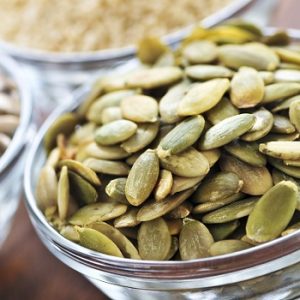
More evidence that low-calorie sweeteners are bad for your health
Studies show that artificial sweeteners can raise the risk of hypertension, metabolic syndrome, type 2 diabetes and heart disease, including stroke.

Natural Health News — Zinc supplements can significantly inhibit the proliferation of oesophageal cancer cells, according to new data.
Previous studies had shown that zinc is essential for maintaining human health and protects the oesophagus from cancer. However, it has never been fully understood why zinc has the ability to prevent cancer in the oesophagus.
In this study, from the University of Texas researchers discovered that zinc selectively halts the growth of cancer cells but not normal oesophageal epithelial cells. The finding was published this month in The FASEB Journal, the official journal of the Federation of American Societies for Experimental Biology.
Oesophageal cancer is the sixth leading cause of human cancer deaths around the world, according to the National Cancer Institute. The institute estimates that there were almost 16,000 oesophageal cancer deaths in the United States alone in 2016. The average five-year survival rate is less than 20%.
“Zinc deficiency has been found in many cancer patients,” said lead researcher Zui Pan, an associate professor of nursing at UTA College of Nursing and Health Innovation. “Both clinical data and animal studies have shown that this mineral is very important for overall body health and for cancer prevention.”
Pan said this study could provide a pathway for better oesophageal cancer prevention and treatment.
An important element
» Zinc is essential for many important body functions and deficiency has been implicated in the development of cancer.
» A new study has found that those who are deficient in zinc may be at a higher risk of oesophageal cancer.
» The link may be the way that zinc impedes overactive calcium signals in cancer cells – something which is absent in normal cells.
Zinc is an important element in many proteins and many enzymes and the absence of zinc makes it impossible for cells to function, she added.
“But previously we didn’t know why the same physiological concentrations of zinc inhibit cancer cell growth but not normal cells. Our study, for the first time to our knowledge, reveals that zinc impedes overactive calcium signals in cancer cells, which is absent in normal cells, and thus zinc selectively inhibits cancer cell growth.” said Pan. “It now appears that zinc and calcium can have a cross talk, meaning that they can be linked.”
An insufficient amount of zinc can lead to the development of cancers and other diseases, Pan said. “That’s why it is important to have a good diet.”
Pan said that in the future they will study how these two signals link, how they impact each other and how researchers can take advantage of what they know. Such a step will guide them in developing a better prevention and treatment strategy, she said.
Zinc rich foods include spinach, flax seeds, beef, pumpkin seeds and seafood like shrimp and oysters. However zinc is also available as a supplement and adults need between 8-11mg daily.

Please subscribe me to your newsletter mailing list. I have read the
privacy statement